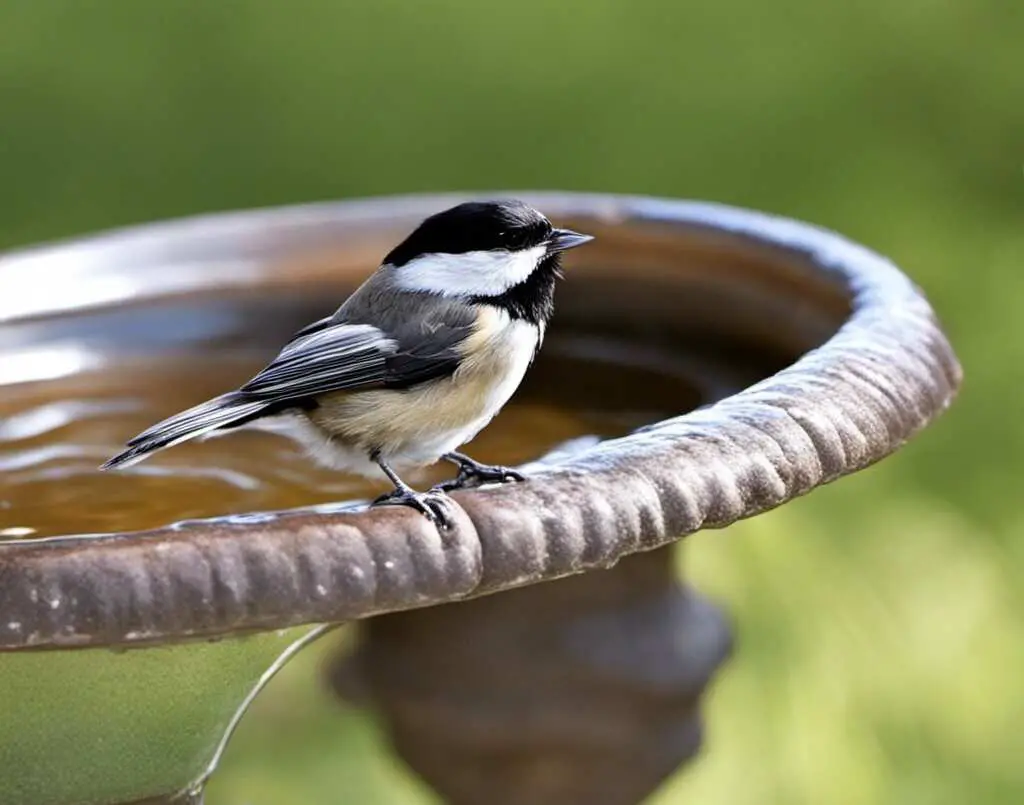Birds are a vital part of our ecosystem, and it’s crucial to understand their hydration habits. Water is essential for maintaining a bird’s body temperature, digestion, and overall health. So, how often do birds drink water?
In this article, we will explore the importance of water for birds, the factors that influence how often they drink, and the various hydration mechanisms they use. We will also discuss the different water sources that birds rely on and provide practical tips for creating suitable water sources in your yard.
Table of Contents
- 1 Key Takeaways
- 2 How Often Do Birds Drink Water?
- 3 Importance of Water for Birds
- 4 Factors Affecting Bird Water Intake
- 5 Bird Hydration Mechanisms
- 6 Water Sources for Birds
- 7 How Birds Locate Water
- 8 Seasonal Variations in Bird Water Intake
- 9 Signs of Dehydration in Birds
- 10 Providing Water for Birds
- 11 Tips for Encouraging Birds to Drink Water
- 12 Hydration Needs of Specific Bird Species
- 13 Conclusion
- 14 FAQs: How Often Do Birds Drink Water?
- 14.1 How often do birds drink water?
- 14.2 Why is water important for birds?
- 14.3 What factors affect bird water intake?
- 14.4 How do birds obtain water?
- 14.5 What are the water sources for birds?
- 14.6 How do birds locate water?
- 14.7 Do birds’ water intake change throughout the year?
- 14.8 What are the signs of dehydration in birds?
- 14.9 How can I provide water for birds?
- 14.10 How can I attract birds to drink water?
- 14.11 Do different bird species have unique hydration needs?
- 15 Author
Key Takeaways
- Water is crucial for birds to maintain their body temperature, digestion, and overall health.
- Various factors influence how often birds drink water, including environmental conditions, food sources, and species-specific needs.
- Birds obtain water through various methods, including drinking, preening, and obtaining moisture from their diet.
- Birds rely on natural bodies of water, bird baths, and even dew as sources of water.
- It’s essential to recognize the signs of dehydration in birds and provide suitable water sources to encourage regular hydration.
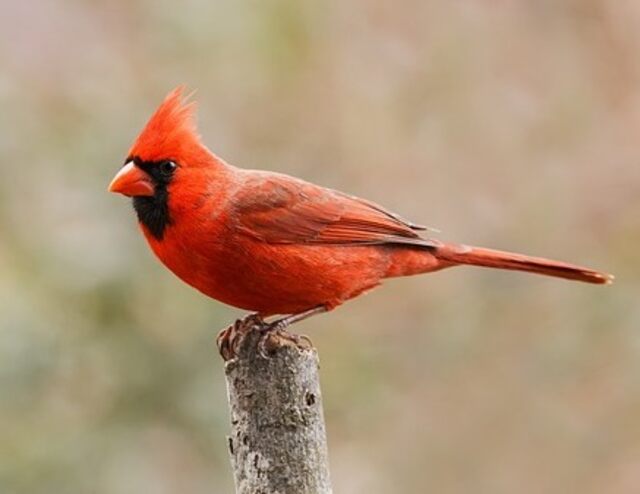
How Often Do Birds Drink Water?
The frequency at which birds drink water varies depending on the species, the temperature, and the availability of water sources. Generally, most birds need to drink water at least twice a day to stay hydrated.
However, some species can survive for long periods without drinking water, as they obtain most of their moisture from their food. In hot and dry conditions, birds may need to drink more frequently to prevent dehydration.
It’s important to provide fresh, clean water sources for birds in your yard or garden, especially during periods of high heat or drought.
Importance of Water for Birds
Birds require water to survive, just like humans and other animals. Water performs several essential functions in a bird’s body, such as aiding digestion, regulating body temperature, and supporting cellular function.
While birds can obtain some moisture from the food they consume, they must also actively seek out and drink water to maintain hydration. The frequency of water intake in birds varies depending on several factors, including environmental conditions and the species’ size and diet.
Importance of Water for Birds
Water is crucial for birds, as it plays a vital role in maintaining their overall health and well-being. For example, water helps birds digest their food properly by breaking down the nutrients and aiding in absorption. Additionally, birds use water to regulate their body temperature by panting or sweating, keeping their internal organs working correctly.
Furthermore, water is also necessary for supporting cellular function, such as delivering oxygen and nutrients to cells through the bloodstream and transporting waste products away from the body. Without enough water, birds can suffer from dehydration, which can have severe, even fatal consequences.
Factors Affecting Bird Water Intake
Birds’ water intake is influenced by several factors, including environmental conditions, food sources, and species-specific needs. Understanding these factors is crucial for creating suitable water sources for birds.
Environmental Conditions
The availability of water in the environment is a significant factor affecting bird water intake. During dry seasons, birds may need to drink water more frequently, and they may seek out sources that are not normally part of their routine, such as dew or moisture from fruits or flowers. High temperatures can also increase water requirements in birds, as they need to regulate their body temperature.
Food Sources
Birds obtain moisture from their diet as well, so the type of food they eat can impact their water intake. For example, insectivorous birds obtain a higher percentage of their water intake from their food than seed-eating birds do. Some birds, such as pigeons and doves, can extract water from seeds, while others, such as nectar-feeding hummingbirds, obtain moisture from their diet as well.
Species-Specific Needs
Each bird species has unique hydration requirements based on their size, metabolism, and activity levels. For example, larger birds require more water than smaller birds. Waterfowl and aquatic birds spend more time in water and thus have a higher water turnover rate than land birds.
Additionally, birds that migrate long distances must be able to store enough water to sustain themselves during their journey.
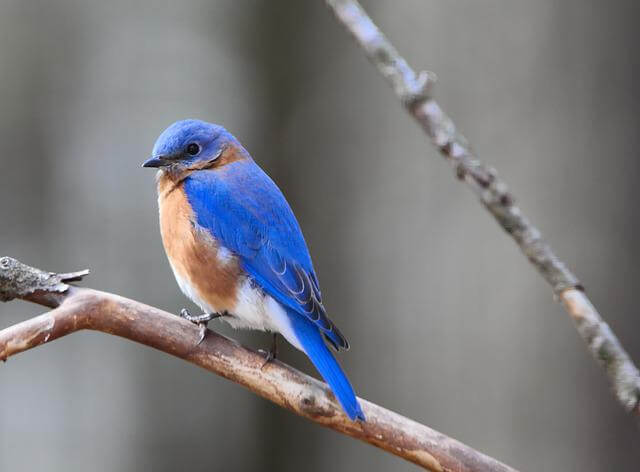
Bird Hydration Mechanisms
Birds have unique ways of obtaining water to stay hydrated. They use a combination of drinking, preening, and obtaining moisture from their diet. Here are some of the ways birds stay hydrated:
Drinking: Birds drink water by taking it into their beaks and swallowing it. They may do this while standing on the ground, perched on a branch, or even while flying. Some birds, such as seagulls, drink saltwater and have special glands that remove excess salt from their bodies.
Preening: Birds spread their feathers with their beaks to clean and condition them. While doing this, they may also add moisture to their feathers, which can help them stay cool and hydrated.
Obtaining moisture from their diet: Birds get moisture from the foods they eat, including insects, fruits, and nectar. Some birds, such as desert species, are adapted to get most of their water from their food sources.
Overall, birds have unique ways of staying hydrated and adapting to different environments. Understanding these mechanisms can help us provide suitable water sources for birds in our backyards and gardens.
Water Sources for Birds
Water is an essential resource for birds, and they rely on a variety of sources to stay hydrated. The frequency of water intake in birds can vary depending on the species and environmental conditions. Here are some of the water sources that birds use:
| Water Source | Description |
|---|---|
| Natural Bodies of Water | Rivers, lakes, and ponds are common water sources for wild birds. They also rely on these bodies of water for bathing and preening. |
| Bird Baths | Providing a bird bath in your yard or garden can attract a variety of bird species. Ensure that the water is changed regularly to prevent the spread of disease. |
| Water Feeders | Similar to bird baths, water feeders are specifically designed to provide a source of water for birds. They can be especially useful during periods of drought or extreme temperatures. |
| Dew | Some birds, such as desert-dwelling species, drink dew that has collected on plants early in the morning. |
It is important to ensure that birds have access to clean and fresh water sources, particularly during periods of extreme heat or cold. Providing a range of water sources can attract a diverse range of bird species to your yard or garden.
How Birds Locate Water
Due to their well-developed senses, birds are adept at locating water sources even from a distance.
One way birds find water is by sight. Bodies of water such as rivers, lakes, and even bird baths can be spotted from the air or while perched on a high vantage point. Some birds use landmarks, such as buildings or trees, to locate water sources.
For example, the American Dipper, a small bird found near streams and rivers in the western United States, navigates to water sources based on the surrounding vegetation and topography.
Another way birds locate water is by following other birds or animals. Large flocks of birds or animals often travel to where water is available, and individual birds can use their senses to follow the group.
Finally, some birds can detect water using their sense of smell. The Kiwi, a flightless bird found in New Zealand, and the Turkey Vulture, a scavenger bird found in North and South America, both have well-developed olfactory systems that allow them to detect the scent of water.
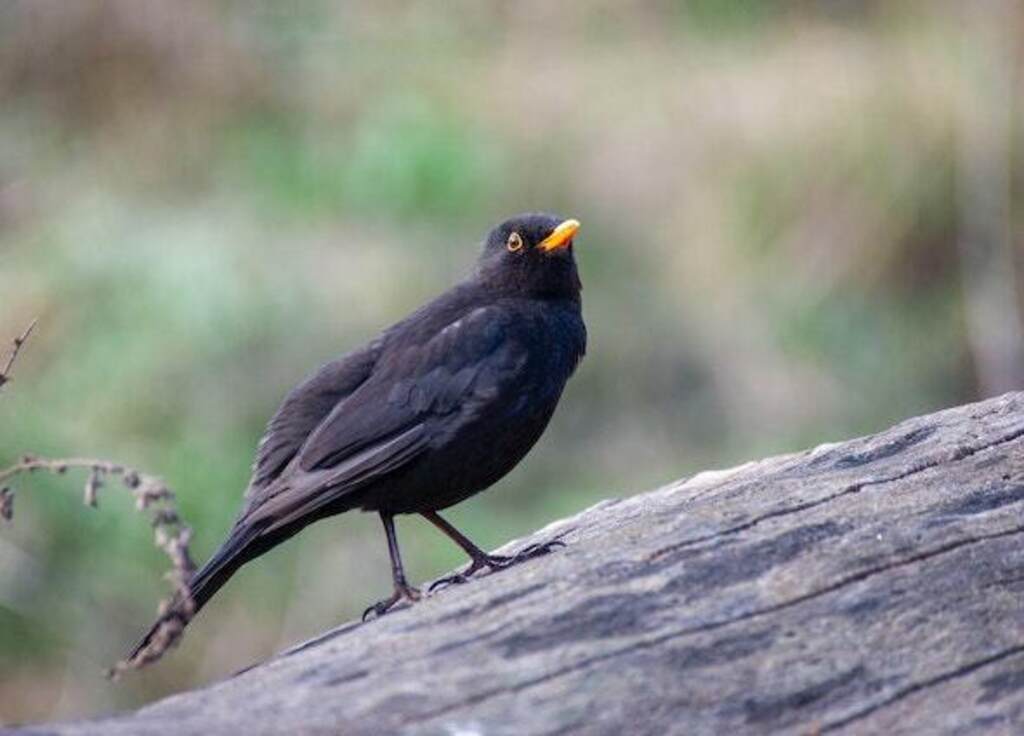
Seasonal Variations in Bird Water Intake
The amount of water birds drink varies throughout the year and is influenced by seasonal changes.
During breeding season, birds require more water to support egg production and to feed their young. This means that they may need to drink more frequently than at other times of the year.
Birds typically start drinking water when they are around 1–2 weeks old. Before that, they obtain all the hydration they need from their diet, which may be in the form of regurgitated food from their parents.
As they grow and become more independent, birds will start to seek out water sources on their own, such as puddles, streams, or bird baths.
In the fall and winter, some bird species may migrate to areas with more abundant water sources. This can impact the water drinking habits of resident bird populations.
In areas with extreme heat or drought, birds may be forced to drink more frequently or seek out alternative water sources.
It’s important to be aware of these seasonal variations in bird water intake when providing water sources for them.
By understanding the unique hydration needs of birds, we can create suitable water sources that support their health and well-being throughout the year.
Signs of Dehydration in Birds
It’s essential for bird owners to be aware of the signs of dehydration in their feathered friends. Here are some indications that a bird may be dehydrated:
- Excessive panting
- Fluffed-up feathers
- Loss of appetite
- Lethargy
- Reduced or absent urination
- Dry or tacky beak
If you notice any of these symptoms, it’s crucial to offer your bird water immediately and consult a veterinarian if the issue persists.
In severe cases, dehydration can be life-threatening for birds. It’s always better to err on the side of caution and seek professional help if you have any concerns about your bird’s health.
Providing Water for Birds
Providing a consistent source of water for birds is essential to ensure they remain hydrated and healthy. Here are some tips for creating suitable water sources for birds:
| Tip | Description |
|---|---|
| Choose a suitable location | Place the water source in a shaded area, away from direct sunlight and potential predators, such as cats or dogs. |
| Use a shallow bowl | Birds prefer shallow water sources, so use a bowl that is less than two inches deep. This will also make it easier for them to clean their feathers. |
| Change the water regularly | Stagnant water can harbor harmful bacteria and algae, so be sure to change the water frequently, ideally every day or two. |
| Offer a variety of water sources | Try providing both a bird bath and a water feeder to give birds more options for drinking and bathing. This can also attract a wider variety of bird species to your yard. |
By following these tips, you can create a suitable water source for birds that will help keep them healthy and happy.
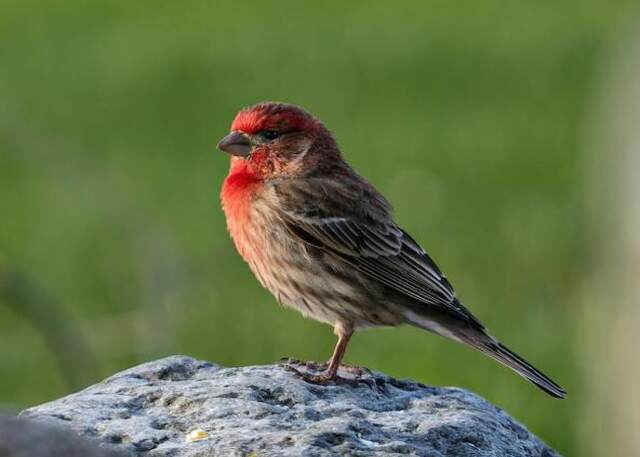
Tips for Encouraging Birds to Drink Water
Providing water for birds is important, but it’s equally important to make sure they actually drink from the water source you’ve provided. Here are some tips for encouraging birds to drink water:
- Location is key: Place your bird bath or water feeder in a location that is easily visible to birds. If it’s too hidden, birds may not realize it’s there.
- Keep it clean: Birds prefer clean water, so make sure to change the water in your bird bath or feeder regularly to prevent it from becoming stagnant or dirty.
- Offer a gradual slope: Make sure your bird bath has a gradual slope to it, as birds prefer water that is shallow enough to stand in, but also deep enough to bathe in.
- Add some movement: Birds are attracted to moving water. Consider adding a fountain or dripper to your bird bath to create movement and noise.
- Provide fresh water: If your water source is stagnant, birds may not be interested in drinking from it. Try refreshing the water with cool, fresh water every few days to encourage them to come back.
Hydration Needs of Specific Bird Species
While all birds require water for survival, different species have unique hydration needs and habits. Understanding these differences can help you provide suitable water sources for the birds in your area.
| Bird Species | Hydration Adaptations |
|---|---|
| Hummingbirds | Hummingbirds have a high metabolism and are constantly in motion, which means they need to drink water frequently to maintain their energy levels. They also obtain moisture from the nectar they feed on. |
| Desert Birds | Birds that inhabit arid regions, such as the roadrunner and quail, have adapted to conserve water by excreting highly concentrated urine and reducing water loss through respiration. |
| Waterfowl | Ducks, geese, and other waterfowl rely heavily on water for survival, as they require it not just for drinking but also for bathing and preening their feathers. |
| Shorebirds | Birds that live near bodies of water, such as sandpipers and plovers, obtain much of their water from the food they consume, such as aquatic insects and small fish. |
It’s important to note that even within a species, individual birds may have different hydration habits and requirements based on factors such as age and health status. Providing a variety of water sources, such as a bird bath and a shallow dish of water, can help ensure that birds of all types are able to stay hydrated.
Conclusion
Understanding how often birds drink water and their hydration needs is essential for maintaining their health and wellbeing. Water serves as a crucial component in their diets, helping with everything from digestion to temperature regulation. By providing suitable water sources, such as bird baths and water feeders, we can help birds stay hydrated even during periods of drought or when natural bodies of water are scarce.
Factors such as environmental conditions, food sources, and species-specific needs can all affect how often birds drink water. It’s important to recognize the signs of dehydration, such as lethargy and sunken eyes, and take steps to provide birds with water when needed.
By understanding the unique hydration requirements of different bird species, we can create tailored environments that meet their specific needs. Whether you’re a bird enthusiast or just want to help local wildlife, providing water for birds is a simple but effective way to make a difference.
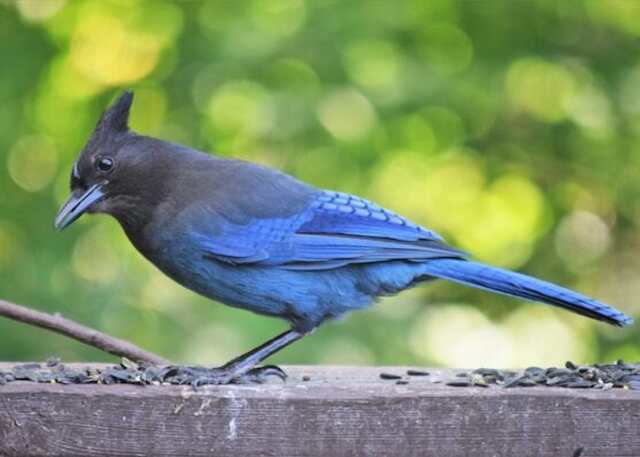
FAQs: How Often Do Birds Drink Water?
How often do birds drink water?
Birds typically drink water multiple times a day to stay hydrated and maintain their bodily functions.
Why is water important for birds?
Water is crucial for birds as it helps regulate their body temperature, aids in digestion, and supports overall health and hydration.
What factors affect bird water intake?
The frequency at which birds drink water can be influenced by environmental conditions, food sources, and individual species needs.
How do birds obtain water?
Birds obtain water through drinking from natural bodies of water, preening their feathers, and obtaining moisture from their diet.
What are the water sources for birds?
Birds rely on various water sources such as natural bodies of water, bird baths, and even dew on plants and leaves.
How do birds locate water?
Birds are capable of detecting water from a distance, as well as using landmarks and visual cues to navigate to water sources.
Do birds’ water intake change throughout the year?
Yes, birds’ water intake can vary seasonally, with increased demand during breeding seasons and migration periods.
What are the signs of dehydration in birds?
Common signs of dehydration in birds include lethargy, sunken eyes, dry skin or feathers, and decreased activity.
How can I provide water for birds?
To provide water for birds, you can set up bird baths, water feeders, or create a small pond or water feature in your yard or garden.
How can I attract birds to drink water?
To encourage birds to drink water, choose a suitable location for water sources, keep the water fresh and clean, and provide a variety of perching options.
Do different bird species have unique hydration needs?
Yes, different bird species may have specific hydration requirements and adaptations, such as desert birds that can conserve water more efficiently.

